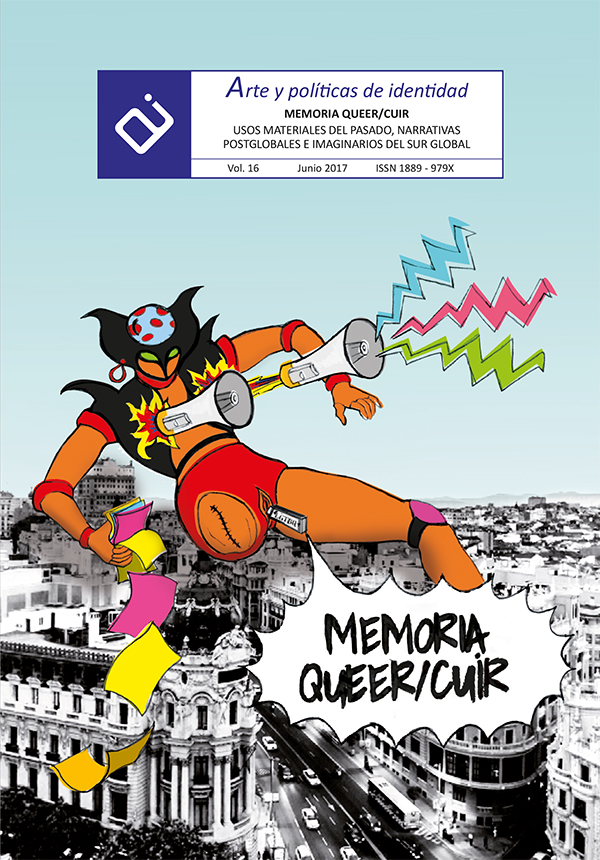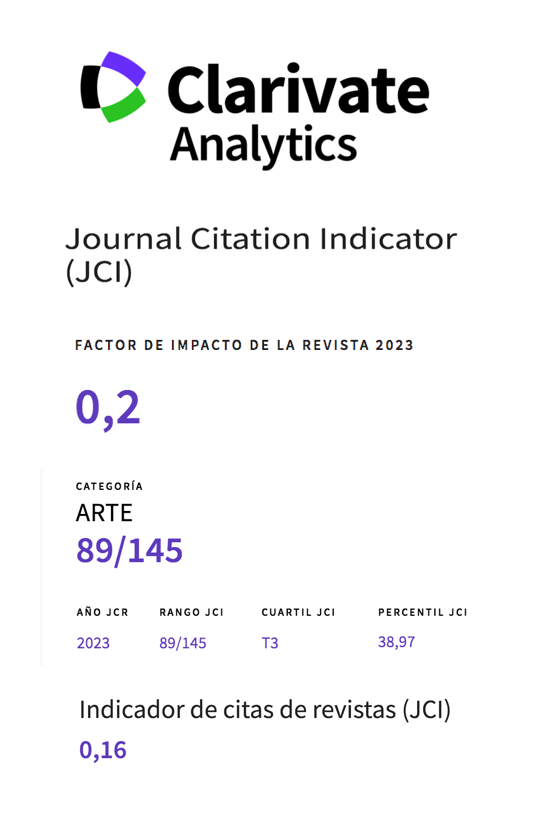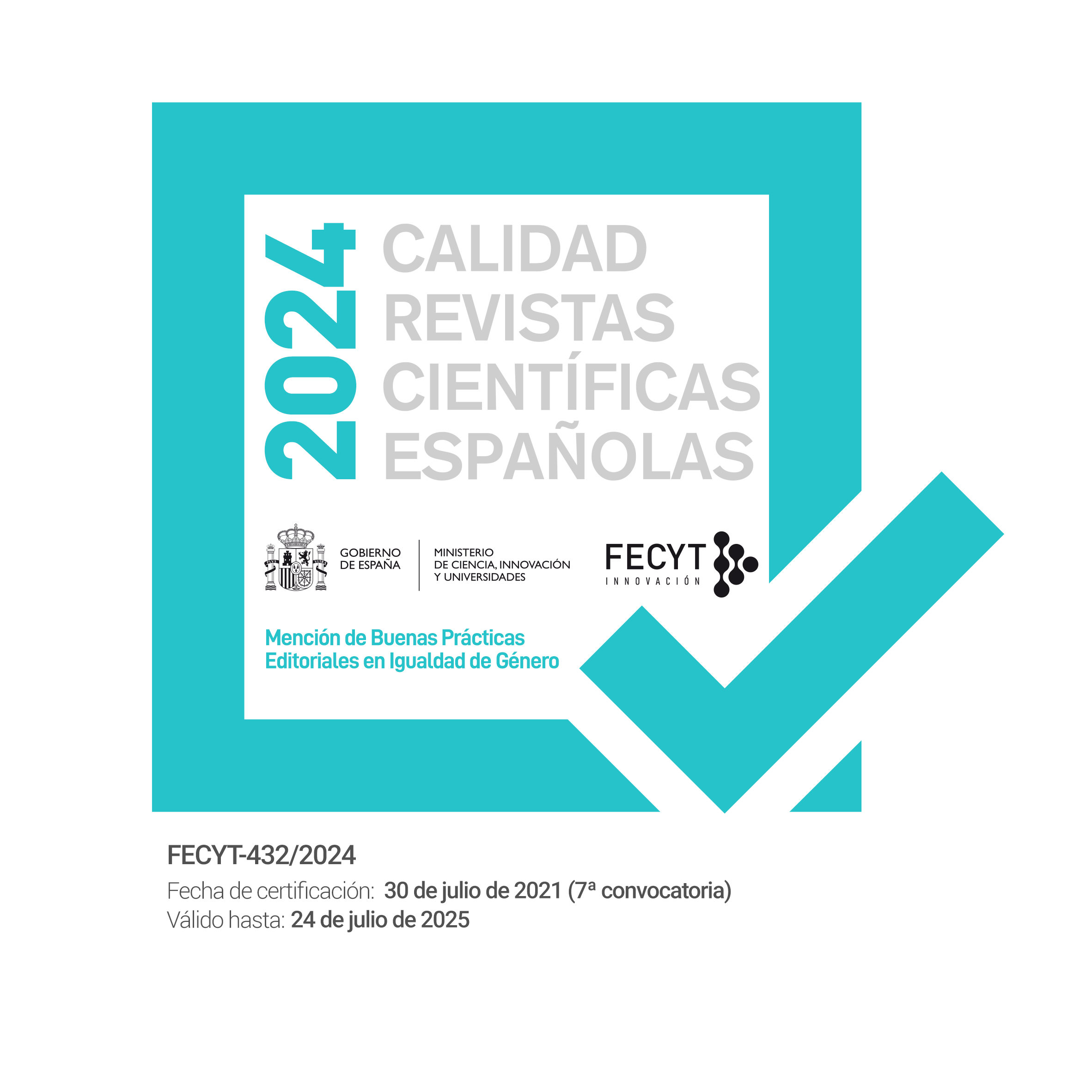Textual Spaces for Trauma Memory
Corporeality Dictated in Dictée
Abstract
Theresa Hak Kyung Cha (1951-1982 ) published in 1981 Dictée, a textual project that explores the limits of autobiography. This incatalogable experiment especially focuses on the issues that afect writng and image as tools to develop memory. Located in the gap that certain trauma poetcs open, Cha calls into queston the implicatons of gender, ethnicity, exile and diaspora from the positon of being in-between, stressing dichotomous approaches.This work analyzes some aspects of Dictée in relaton to other autobiographical projects developed by women who queston the possibilites of writng oneself, assuming the positon of a subject who is “in-between”. The “in-between” is understood as an heterotopic space belonging to the conditons of diaspora and the culture of trauma. For Cha, dictaton works as a paradigm of a language, a culture and a memory that is imposed and afects the constructon of subjectvity. From this we consider the relatonship between writng and corporality, and the importance of voice and orality concurring in textual praxis, in discrepancy with the narratve modes of scriptural regimes.
Downloads
-
Abstract421
-
PDF (Español (España))430
References
Ahmed, S. (2006). Orientations: towards a Queer Phenomenology. GLQ: A Journal of lesbian and Gay Studies, 12, 543-574.
Ahmed, S. (2010). The Promise of Hapiness. Duke: University Press. Ahmed, S. (2014). Mixed orientations. Subjectivity, 7(1), 92-109.
Anzaldúa, G. (1999). Borderlands/La Frontera. San Francisco: Aunt Lute Books.
Benjamin, W. (2010). El narrador. Santiago de Chile: Metales pesados.
Cha, T. H. K. (2009a). Dictée. Berkeley: University of California Press.
Cha, T. H. K. (2009b). Exilée: Temps morts: selected works. Berkeley:University of California Press.
Cheng, A. (2001). The Melancholy of Race: Psychoanalysis, Assimilation, and Hidden Grief. Oxford: Oxford University Press.
Cheng, A. (1998). Memory and anti-documentary desire in Theresa Hak Kyung Cha’s Dictée. MELUS, 23(4). 119-133.
Cho, G. (2007). Voices from the Teum: Synesthetic Trauma and the Ghosts of the Korean Diaspora. En P. Ticineto Clough & J. Halley (Eds.). The Affective Turn, theorizing the social (pp.151-169). Durham: Duke University Press.
Cho, J. (2011). Mel-han-cholia as Political Practice in Theresa Hak Kyung Cha’s Dictée. Meridians: feminism, race, transnationalism, 2(1), 36-61.
Cixous, H. (1995). La risa de la Medusa: ensayos sobre la escritura. Barcelona: Anthropos.
De Certeau, M. (2000). La invención de lo cotidiano I. Artes de hacer. México D.F: Universidad Iberoamericana.
Douglas, M. (1978). Do dogs laugh? A cross-cultural approach to body symbolism. En T. Polhemus (Ed.). The Body Reader: Social Aspects of the Human Body (295-301). New York: Pantheon Books:[Originally published in Journal of Psychosomatic Research(1971), 15, 387-390].
Fundació Antoni Tàpies. (2005). El sueño del público: Theresa Hak Kyung Cha. Barcelona: Fundació Antoni Tàpies.
Gammel I. & Zelazo S. (2011). Introduction: The First American Dada. En Freytag-Loringhoven, E. Body Sweats: the uncensored writings of Elsa von Freytag-Loringhoven (pp.1-39). Massachusetts: Institute of Technology,.
Joo, Hee-Jung, S. & Lux, C. (2012). Dismantling Bellicose Identities: Strategic Language Games in Theresa Hak Kyung Cha’s Dictée. Journal of Transnational American Studies, 4(1). Recuperado de: http://escholarship.org/uc/item/19c9k0br
Kim, E. H. (1994). Poised on the In-between: A Korean American’s Reflections on Theresa Hak Kyung Cha’s Dictée. En N. Alarcon, E. Kim, & H. Yi Kang (Eds.) Writing Self, Writing Nation: A Collection of Essays on Dictee by Theresa Hak Kyung Cha (pp. 3-34). University of California: Third Women Press.
Lorde, A. (2003). La hermana, la extranjera. Madrid: Horas y Horas.
Lowe, L. (1994). Unfaithful to the Original: The subject of Dictée. En N. Alarcon, E. Kim, & H. Yi Kang (Eds.) Writing Self, Writing Nation: A Collection of Essays on Dictee by Theresa Hak Kyung Cha (pp. 35-72). University of California: Third Women Press.
Lucero, J. N. (2016). Espacios del género, movimientos de la orientación: reflexiones fenomenológicas en torno a lo queer. Avatares Filosóficos, 3, 171-184.
Minh-Ha, T. T. (1987). Grandma’s Story. En B. Wallis (Ed.). Blasted Allegories, and anthology of writtings by Contemporary Artists(pp. 2-30). New York: The New Museum of Contemporary Art & The MIT Press.
Minh-Ha, T. T. (1989). Woman, Native, Other: Writing postcoloniality and feminism. Bloomington: Indiana University Press.
Spector, N. (1995). Félix González-Torres. Santiago de Compostela: CGAC.
Works published in this journal are subject to the following terms:
- The Service of Publications from the University of Murcia (publishing house) keeps the published works’ copyrights, and favors and allows the reuse of these works under the license indicated in point 2.
- Works are published in the journal’s online edition under the license Creative Commons Reconocimiento-NoComercial-SinObraDerivada 3.0 España(texto legal). They can be copied, used, disseminated, transmitted and publicly exhibited, as long as: i) the author and original source of publication are cited (journal, publishing house and work’s URL); ii) they are not used for commercial purposes; iii) the existence and specifications of this license are mentioned.
3. Conditions for auto-file. It is allowed and encouraged that authors share electronically their pre-print version (the pre-reviewed version) and /or post-print version (the reviewed and accepted version) of their Works before the publication, since it promotes its circulation and dissemination. RoMEO color: green.










